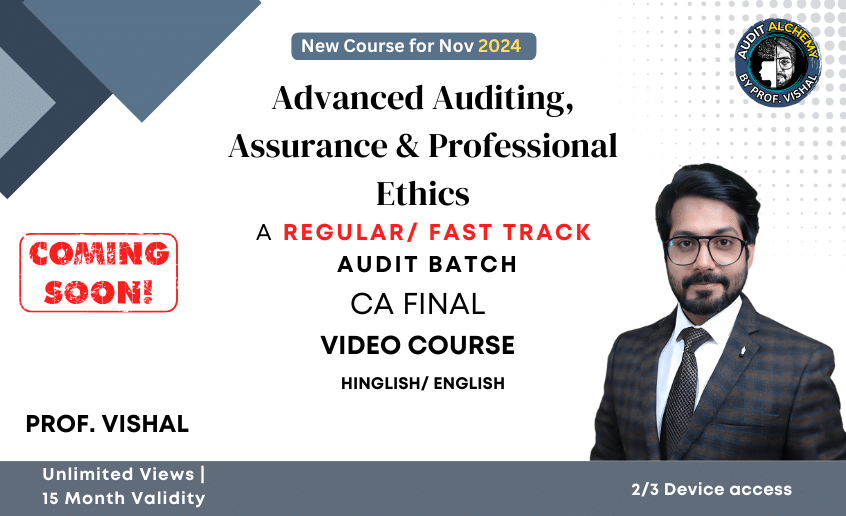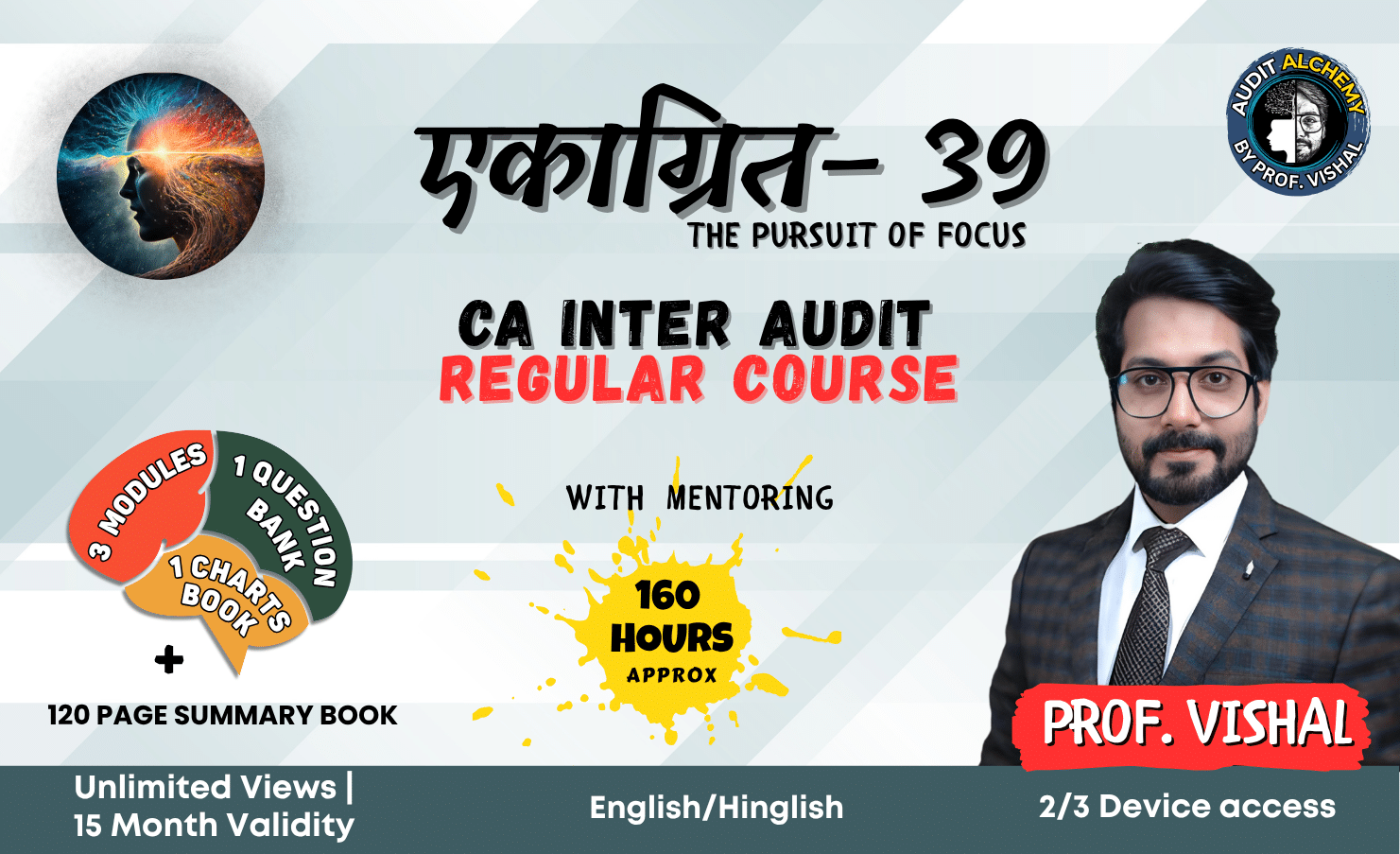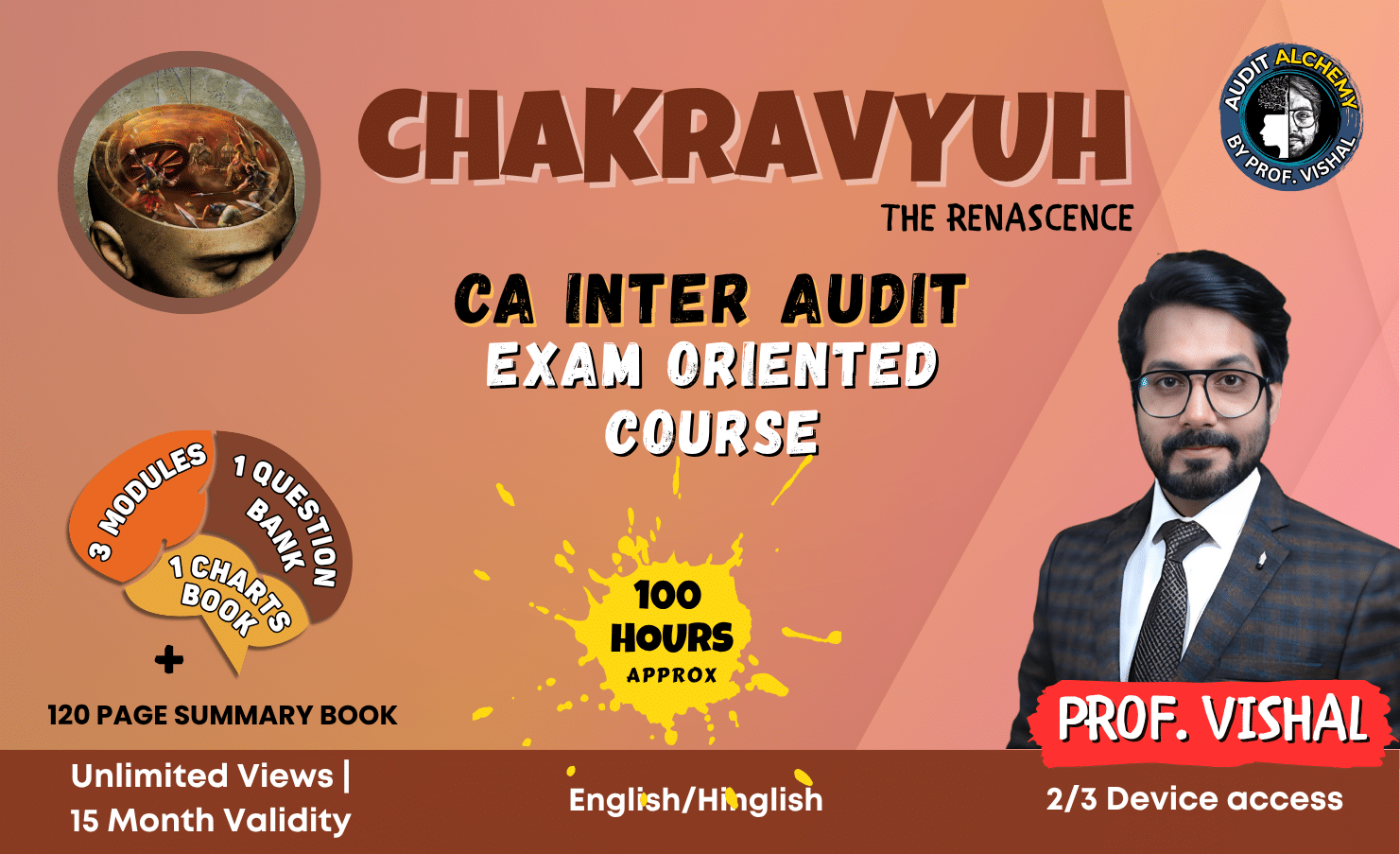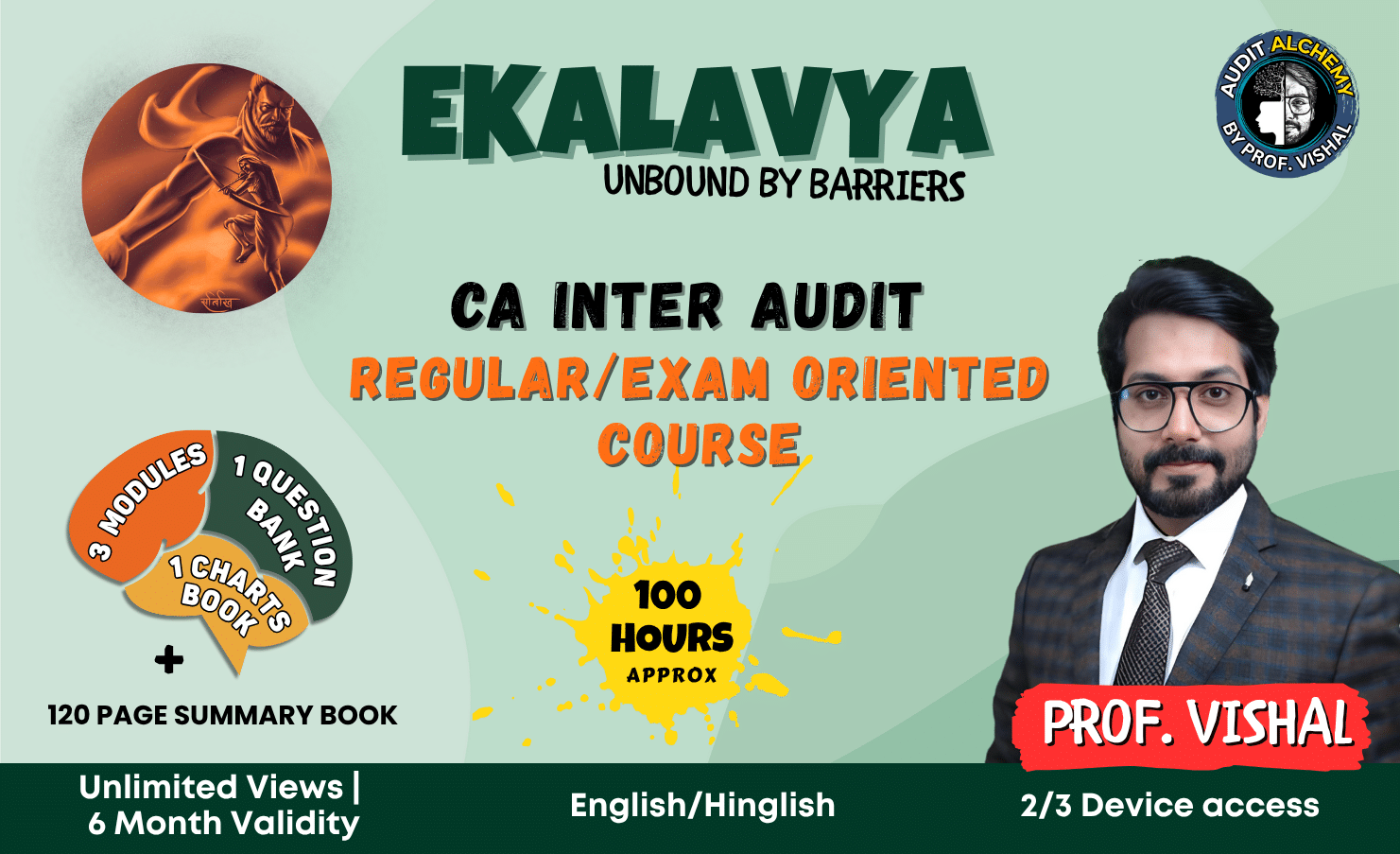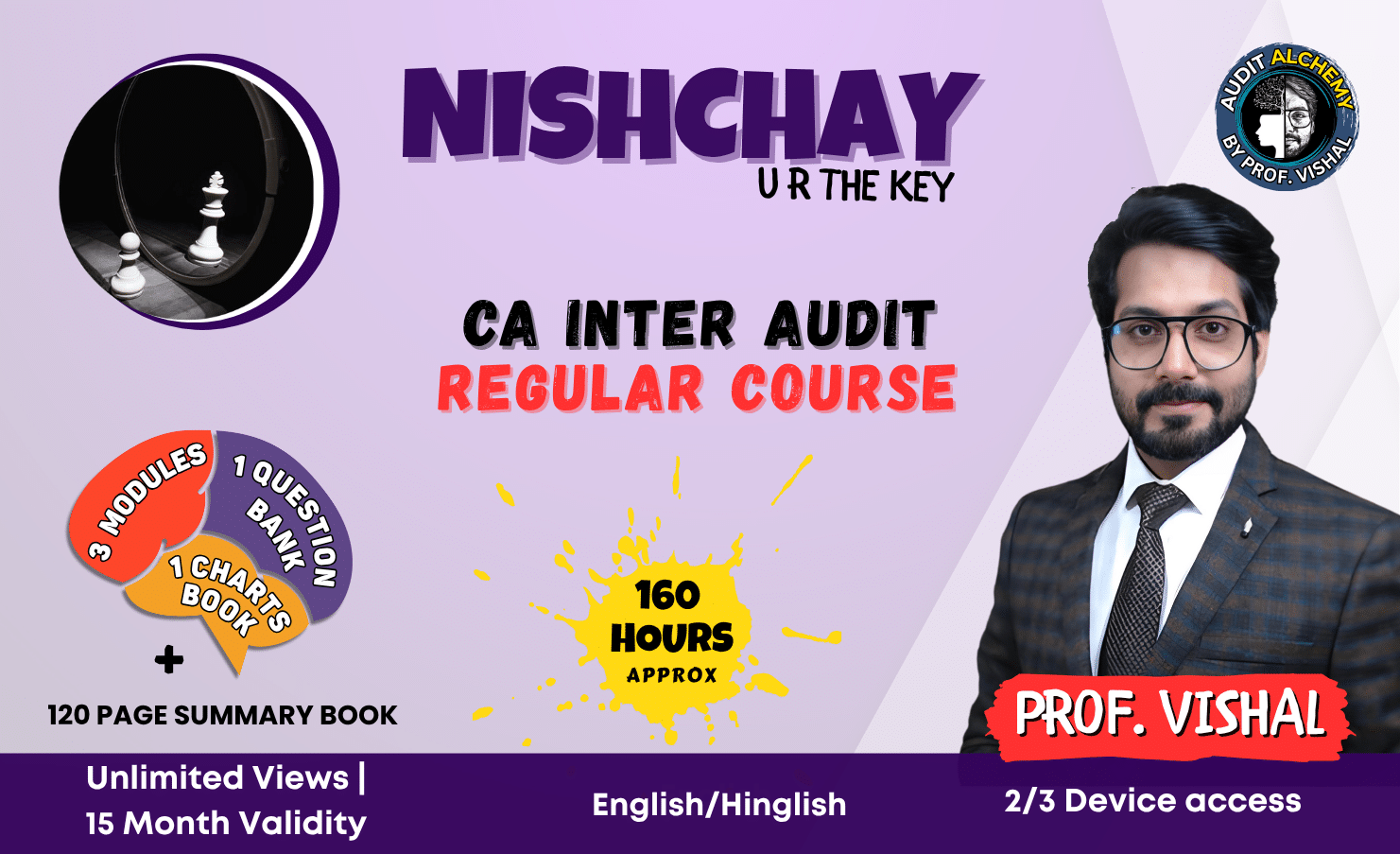Securing an exemption in any of the papers is a cherished achievement for many CA students. To receive an exemption, one must obtain a minimum of 60 marks in any CA paper. Exemption in a paper acts as a safety net, protecting students from the risk of failing one or more tests. Even if they do not pass certain papers, their grades will carry over to the next three attempts, eliminating the need for reappearing in those papers. In simpler terms, they are exempt from retaking the eligible papers.
Let’s illustrate this with a simple scenario –
For example, a student scores 62 and 68 marks in two of the group papers but fails to clear the entire group (comprising 4 papers). In their next attempt, what must they achieve in the remaining papers to ensure a passing grade?
To maintain a minimum aggregate of 50%, they must score at least 70 marks (200 – 130) in the next two papers. However, there’s an additional requirement: securing 40% marks in each individual subject. In this case, obtaining 70 marks in total won’t be sufficient. To be declared passed in that group, they must obtain a minimum of 40 marks in each of the remaining two papers.
The logic behind exemptions may seem complex, but it’s undeniably enticing. Every student aspires to cross the threshold and make exemptions a priority. A survey of students would likely show strong support for gaining an exemption – it’s a significant achievement.
Now that we understand the significance, a common question arises: How can a student secure an exemption in a specific subject? Here are some pointers to assist a student seeking an exemption:
Select a Subject of Strong Confidence
Choose a subject that genuinely interests you, whether it’s theoretical or practical. Have faith in your ability to secure at least 60 marks, even if the paper is challenging.
Aiming for Exemption in a Theory Paper
To perform well in theory subjects, consider the following:
• Adopt a comprehensive approach to exam preparation, avoiding selective approaches that limit course coverage.
• Prioritize understanding concepts over mere memorization of theoretical topics.
• Develop a habit of making notes for each topic to aid in long-term retention.
• Refer to the Institute’s solutions for past years’ question papers to understand the expected writing pattern.
• Highlight key words in your answers to draw the examiner’s attention.
• Answer questions with precision and accuracy, avoiding unnecessary embellishments.
• Use technical terms when appropriate.
• Present answers in a point format.
• Cite relevant Case Laws, Provisions, and Sections in your answers.
• Aiming for Exemption in a Practical Paper
• Practical papers can be scored well if you follow these points:
• Ensure a clear understanding of concepts.
• Practice extensively to develop presentation skills and time management.
• Include working notes, steps, and explanations where necessary.
• Revise and retain important concepts, making handy notes for easy reference.
• Attempt the Entire Paper, i.e., 116 marks
• It’s essential to attempt all questions with precision and accuracy. The likelihood of securing an exemption increases with the number of marks attempted.
Comprehensive Coverage of the Syllabus
Don’t neglect any chapters in your preparation, as all topics are essential. While you can set priorities, ignoring a topic completely is not advisable.
Strategize Before the Exam
In the 15 minutes before the exam, plan which questions to attempt first based on your confidence level. Avoid hasty decisions, as choosing questions without careful consideration can hinder your exemption goal.
Importance of Remaining Subjects
If you’re aiming for an exemption in a particular subject, don’t overlook the importance of scoring a minimum of 40 marks in the remaining papers.
It’s Not 60 – It’s Just 50
Getting around 50% in the entire paper, which is half of the total marks, can qualify you for an exemption. It’s not always about achieving 60% of the total marks.
Practice with Mock Tests
Participate in practice tests, MTPs, RTPs, and previous year’s papers. Familiarize yourself with test conditions to attempt 116 marks confidently in the final exam.
The Five-Hour Rule for Success
Emulate the five-hour rule, a strategy used by successful business leaders like Bill Gates, Jack Ma, and Elon Musk. Dedicate one hour a day, five days a week, to deliberate learning. Additional reading and knowledge acquisition can give you an edge and improve your exam performance.
Conclusion
By following these guidelines, students can increase their chances of clearing all levels of the CA course with exemptions in major subjects. Consistency and dedication are the keys to success in this competitive endeavour.




